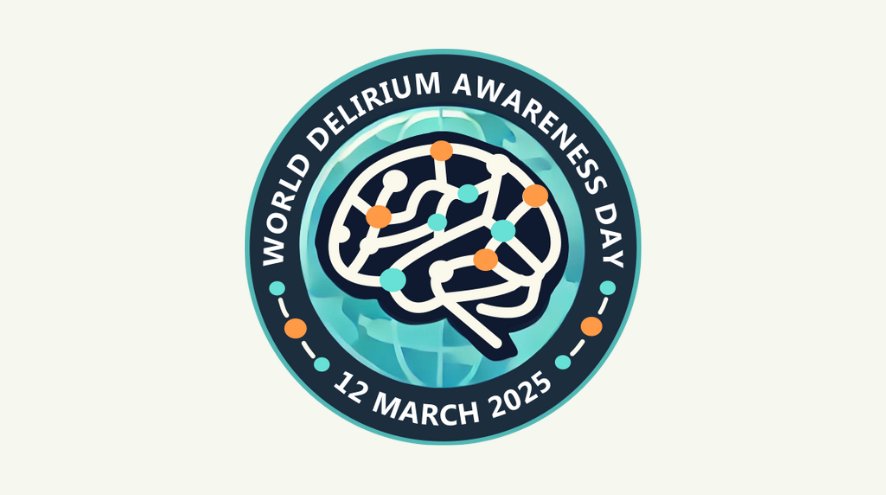World Delirium Awareness Day
Today, March 12, is World Delirium Awareness Day. Learn more about delirium and how it can impact people with dementia below.

At least one in four Nova Scotians in hospital screen positive for delirium every day. Delirium, a sudden change in thinking, is a common and underrecognized condition and an important topic for healthcare professionals, persons with dementia, and care partners.
Today, March 12, is World Delirium Awareness Day. Researchers and healthcare professionals around the world will bring attention to the risk factors for delirium, highlight the importance of early detection, and educate patients and families affected by delirium.
Dr. Searle, Assistant Professor at Dalhousie University, has been increasing awareness of delirium for four years with screening events in hospitals across Nova Scotia. The purpose of the screening is to identify the prevalence of delirium among in-patients. The data will be used to engage the healthcare system in discussions to enhance the quality of care of patients with delirium. This year, screening for delirium will take place in hospitals across the province.
Although the two conditions are often confused, delirium and dementia are not the same. Dr. Searle explains that delirium is caused by the brain working extra hard due to an illness or condition. Anyone can get delirium. A young person with a healthy brain may be at risk for delirium with a serious illness such as meningitis or sepsis. People with dementia or a brain injury, and older adults have a higher risk of developing delirium. For a person with dementia, for example, something as simple as constipation can cause delirium. A urinary tract infection resulting from dehydration can also cause delirium in people who are frail or have cognitive challenges. Certain medications can be another possible cause the condition in people at risk.
In addition to the high prevalence of delirium in hospitals, people with dementia living at home in the wider community are also at risk of developing delirium. Dr. Searle explains that families should be aware that sudden changes in their family member’s cognitive abilities to understand, think, remember, and communicate may be caused by delirium.
Dementia is a condition that progresses slowly over time whereas delirium is characterized by sudden changes that can fluctuate from day to day. If you see a sudden shift in the typical thinking abilities of a person with dementia, delirium is likely the cause. Dr. Searle offered these suggestions to help prevent and resolve delirium in people with dementia. Make sure that the person:
- Eats and drinks.
- Uses the washroom regularly (urinates and passes stool).
- Aim to get quality sleep.
The environment should also be appropriate for the person, with the desired amount of stimulation. From a person-centred care perspective, the ideal conditions for each individual will be different. If the situation persists or gets worse after taking these steps, seek urgent medical attention right away. Dr. Searle also emphasized that care partners know the person best, and it is critical to advocate for a person with dementia in healthcare settings.
Delirium is often reversible when the cause is known. However, if left untreated delirium may result in a new baseline in the cognitive abilities of a person with dementia. Recognizing the signs and symptoms and taking the proper steps to reduce the length of the delirious episode can help minimize the long-term impact. To learn more about delirium, visit the Canadian Coalition for Seniors’ Mental Health.
